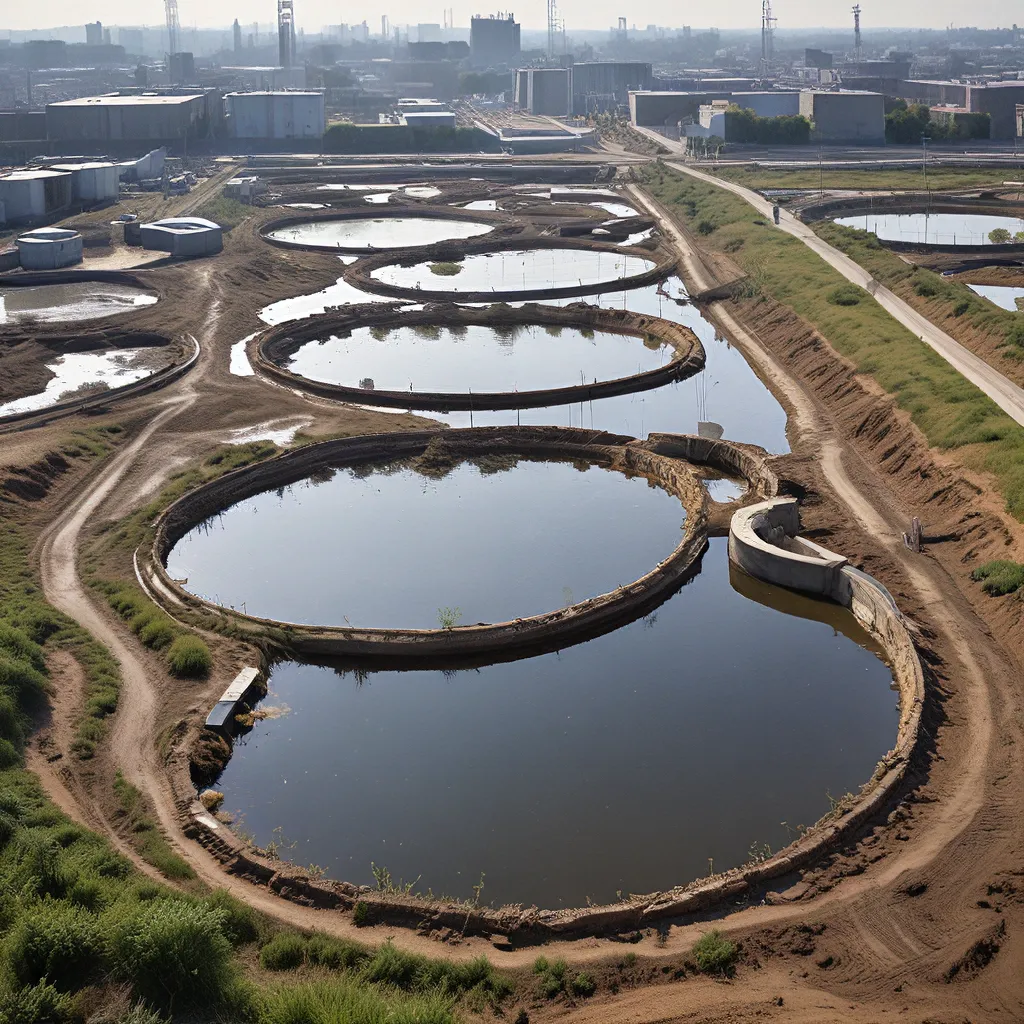
As someone who’s always been fascinated by the intricate web of systems that keep our world running, I’ve been closely following the circular bioconomy – a revolutionary approach to waste management that’s poised to transform the way we think about our environmental footprint. And at the heart of this exciting movement is the unsung hero of modern civilization: wastewater treatment.
You know, it’s funny how we often take for granted the essential services that keep our communities thriving. I mean, think about it – every time you flush the toilet or let the water run, you’re relying on a complex network of pipes, pumps, and treatment facilities to whisk away all those, well, let’s just say less-than-pleasant byproducts of our daily lives. But the truth is, wastewater management is so much more than just flushing and forgetting.
Unveiling the Hidden Potential of Wastewater
See, these days, the folks in the wastewater treatment world aren’t just focused on, well, treating wastewater. They’re on a mission to unlock the hidden value lurking in all that, um, used water. And let me tell you, the possibilities are downright mind-boggling.
Think about it this way: every time we flush, bathe, or do the dishes, we’re sending a treasure trove of nutrients, energy, and even valuable materials down the drain. And in the past, all of that good stuff just got, well, flushed away. But now, forward-thinking wastewater treatment plants are harnessing these resources to create a whole new world of possibilities.
From Waste to Wealth: The Rise of Resource Recovery
For example, did you know that wastewater can be used to generate renewable energy? That’s right – by capturing the methane produced during the treatment process, these plants can power their own operations, and even sell excess energy back to the grid. It’s like turning trash into treasure, except in this case, the trash is, well, our trash.
But that’s just the tip of the iceberg. Wastewater also contains a veritable goldmine of nutrients – things like nitrogen and phosphorus – that can be extracted and repurposed as fertilizers for agriculture. And get this – some plants are even using wastewater to grow algae, which can then be harvested and turned into biofuels or animal feed. Talk about a circular economy in action!
Redefining the Future of Waste Management
And the best part is, this circular bioconomy approach isn’t just limited to wastewater. It’s a holistic way of rethinking our entire waste management system, from the food we eat to the products we buy. It’s all about minimizing waste, maximizing resource recovery, and closing the loop on the materials and energy that flow through our society.
I mean, think about it – instead of just burying our trash in a landfill or burning it in an incinerator, we could be transforming that waste into valuable products that can be fed back into the economy. And that’s not just good for the environment – it’s also good for business.
The Rise of the Circular Bioconomy
Take the bioeconomy, for example – a rapidly growing sector that’s focused on harnessing the power of biology to create sustainable and renewable products. By integrating the principles of the circular economy with the innovative potential of biotechnology, we’re seeing the emergence of a circular bioconomy that’s redefining the way we think about waste management.
And the wastewater treatment industry is right at the forefront of this revolution. From bioplastics and biofuels to nutrient-rich fertilizers and high-value biochemicals, these cutting-edge facilities are leading the charge in transforming our waste into valuable resources.
The Future is Bright (and Circular)
So, what does all of this mean for the future of waste management? Well, if you ask me, it’s a game-changer. By embracing the circular bioconomy and leveraging the power of wastewater treatment, we can create a more sustainable, resource-efficient, and economically viable approach to managing our waste.
And the best part? This is just the beginning. As research and innovation continue to push the boundaries of what’s possible, I can’t wait to see what other exciting and transformative developments emerge in the world of waste management.
So, the next time you flush the toilet or take a shower, remember – you’re not just getting rid of your waste, you’re contributing to a brighter, more sustainable future. And that’s something we can all feel good about.